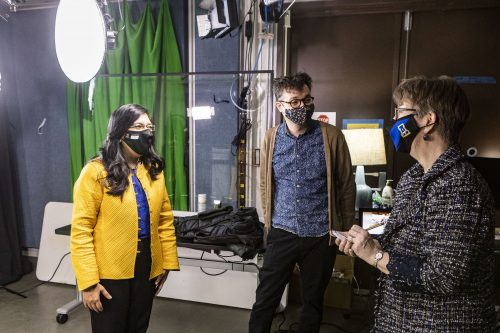Friday Focus: People remember how you made them feel
April 9, 2021
People will forget what you said, people will forget what you did, but people will never forget how you made them feel. — Maya Angelou, American poet, memoirist and civil rights activist
I grew up in a home where anyone could stop by any time, unannounced, and stay as long as they wished. My mother would always make every visitor feel welcome and special, even when we recognized that it was inconvenient for her. That is what I had seen and that is what I believed the world around me would be like.
I must have been 8 or 9 years old when we had a visitor whose daughter was my age, and we instantly became friends. I was so excited to introduce this new buddy to my aunt that we knocked at her door midafternoon. We were met with a cold stare followed by some angry remarks. I do not remember what she said. I just remember I was shaken, wanted to run away but couldn’t. I felt hurt, humiliated, my head was spinning, and my heart was palpitating from the myriad of emotions. It has been over 40 years, and I still vividly remember how I felt.
I have reflected on that memory many times. Had I made a mistake or a blunder? Was my aunt’s anger justified? Was it right or wrong of her to say whatever she said to me? It is likely that the point she wanted to make was right. But that did not matter as my mind was already numb and the words had stopped registering. It wasn't the message but the tone that was wrong.

Tone matters, whether it is our verbal message or our written communication. Every day in our lives we have an opportunity to work on the tone. A small difference in opinion can transform to a mega conflict if the tone of the conversation is wrong. Conversely, the right tone will make others with differing opinions be more open to listening to our perspective. A curt tone in an email message can make a request seem like a command. A warm and welcoming tone in syllabi can make students feel supported and can contribute to student success. A harsh tone in our feedback to a student can make a critique that was intended to be educational be perceived as punitive.
Maya Angelou said, “People will forget what you said, people will forget what you did, but people will never forget how you made them feel.” The point is, with intentional effort we can ensure that we get into the habit of using a positive tone and make the audience of our message feel included. As we embrace and grow a culture of respect, diversity, inclusion and caring at UAF, let us make the use of a positive tone a part of our muscle memory.
Friday Focus is a column written by a different member of UAF’s leadership team every week. On occasion, a guest writer is invited to contribute a column.


